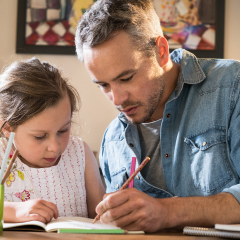The Online Safety Bill
The 19th of September, 2023, marked a momentous occasion as Parliament passed the Online Safety Bill, which will soon become law. The increasing number of online abuse incidents and the escalating concern around this topic demonstrate this Bill's importance, resulting in the change.
In August 2023, the NSPCC released their research, which showed that in the last 5 years, there has been an 82% rise in online grooming cases and a 66% increase in child abuse image crimes. In addition, the police recorded 34,000 online grooming crimes against children in the last 5 years. Furthermore, The Internet Watch Foundation recorded 63,050 incidents of sexual imagery of 7–10-year-olds that were either found or reported. Many of these children had been coerced, tricked, or groomed into performing sexual acts by an online predator. Even more distressing are the reports of suicide where harmful online content and/or bullying were the predominant reasons for the deterioration in mental health, which led to these children and young people’s deaths.
Zero Tolerance
The most recent government press release states, “the Bill takes a zero-tolerance approach to protecting children and ensures social media platforms are held responsible for the content they host.”
These platforms and their leaders could face significant fines or even prison if they do not act swiftly to prevent and remove illegal content, as well as put in place measures to stop children from seeing material which is harmful to them.
Social media platforms will be expected to:
- Remove illegal content quickly or prevent it from appearing in the first place, including content promoting self-harm
- Prevent children from accessing harmful and age-inappropriate content
- Enforce age limits and age-checking measures
- Ensure the risks and dangers posed to children on the largest social media platforms are more transparent, including by publishing risk assessments
- Provide parents and children with clear and accessible ways to report problems online when they arise
As well as protecting children, the Bill allows adults to control what they see online. This will be done through three layers of protection:
- Make sure illegal content will have to be removed
- Place a legal responsibility on social media platforms to enforce the promises they make to users when they sign up through terms and conditions
- Offer users the option to filter out harmful content, such as bullying, that they do not want to see online
The Bill also includes new laws tackling online fraud and violence against women and girls. The government states, “through this legislation, it will be easier to convict someone who shares intimate images without consent, and new laws will further criminalise the non-consensual sharing of intimate deepfakes.”
Types of content that will be tackled
Although some content online is illegal, the Online Safety Bill will force social media to remove illegal content. For the first time, any content promoting self-harm will also be considered illegal and need to be removed. The purpose of the Bill is to stop illegal content from appearing online at all - not just removing content. According to the Bill, the following illegal content will need to be removed:
- Child sexual abuse
- Controlling or coercive behaviour
- Extreme sexual violence
- Fraud
- Hate crime
- Inciting violence
- Illegal immigration and people smuggling
- Promoting or facilitating suicide
- Promoting self-harm
- Revenge porn
- Selling illegal drugs or weapons
- Sexual exploitation
- Terrorism
The Bill also looks at harmful or age-inappropriate content for children and the platform’s responsibility for protecting children from it.
The categories of harmful content that platforms will need to protect children from encountering are set out in the Bill and include:
- Pornographic content
- Content that does not meet a criminal threshold but which promotes, encourages or provides instructions for suicide, self-harm or eating disorders
- Content that depicts or encourages serious violence
- Bullying content
Keeping children safe online
Schools and colleges can adopt a holistic approach to support pupils in staying safe on the internet. This involves several steps, such as regularly reviewing and ensuring the appropriateness of monitoring and filtering systems in line with updated guidance like Keeping Children Safe in Education (2023).
It's important to have a clear process for reporting safeguarding concerns, including online abuse. Additionally, organising a comprehensive training program (CPD) for staff is crucial. This program should focus on helping staff recognise signs of online abuse, enhancing their media literacy skills, and providing training on new technologies that pupils may use. Lastly, integrating internet safety education into the school curriculum ensures pupils are well-informed about safe online behaviour.
Things to consider with your curriculum:
When constructing your curriculum, it's important to ask: does it integrate elements of the Relationships, Sex, and Health curriculum? This includes:
- Teaching pupils about online safety and the associated risks
- Educating pupils on the impact of their online actions on others
- Instructing pupils on recognising and displaying respectful behaviour online,
Similarly, this should seamlessly complement the computing curriculum. Does your computing curriculum include the following:
- Cover the principles of online safety at all key stages
- Teach pupils how to use technology safely, responsibly, respectfully, and securely
- Explain where to go for help and support when pupils have concerns about content or contact on the internet or other online technologies
- A bespoke offer for vulnerable pupils. This could include smaller intervention groups
- Top tips, online safety newsletters or workshops to support parents
Empowering safeguarding with help from experts
The passing of the Online Safety Bill signals a critical response to the alarming surge in online abuse incidents. The distressing link between harmful online content and mental health deterioration leading to tragic outcomes necessitates urgent action. The Bill adopts a zero-tolerance approach, holding social media platforms accountable and empowering adults to control their online experiences.
Juniper Education offers vital support through specialised safeguarding CPD training, aligning curricula and ensuring compliance with the Bill’s provisions for a safer online environment.
If you would like to discuss any bespoke safeguarding training requirements for your school or MAT, feel free to reach out directly to our expert, Maria Thomas, maria.thomas@junipereducation.org
Unlock excellence: beyond statutory requirements
Our training also doesn't stop at meeting obligations; it's about creating a holistic culture that propels pupils to success in every aspect of life. Explore our latest training programmes encompassing safety, well-being, and learning to create a culture of excellence.
Join over 3,300 satisfied delegates yearly and witness the transformation in your school culture!







